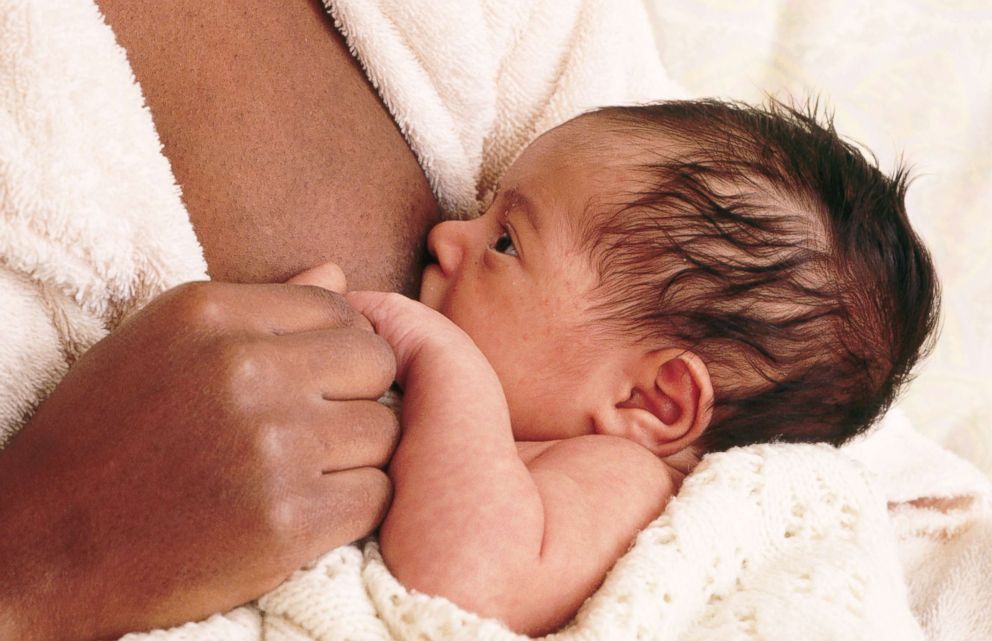6 things you may not know about breastfeeding
Breastfeeding is not necessarily a golden ticket to weight loss.
Let's talk about breastfeeding.
It seems everyone has advice, tips and an opinion or two to offer new moms. While you were taking it all in and trying to keep track of the guidelines and controversies, here are a few recent developments you may have missed.
1. Breastfeeding was recently linked to a lower risk of stroke later in life
In a study published in the Journal of the American Heart Association, researchers looked at the health information of 80,000 women in the 1990s as part of The Women’s Health Initiative, a long-term study of women’s health.
Then in 2010, after adjusting for other factors -- exercise habits, smoking, etc. -- researchers found that the women who had breastfed their babies had on average a 23 percent lower risk of stroke compared to the women who hadn't.
The women who had breastfed the longest had the greatest stroke risk reductions. The effect was most pronounced in African American women, who saw a 48 percent reduction in the risk of stroke, followed by Hispanic women, who had a 32 percent lower risk.
Caucasian women who had a 21 percent lower risk.
2. Bacteria found in breast milk have been linked to lower risk of asthma, celiac disease and other autoimmune conditions
The organisms to which babies are exposed early in life are known to shape the long-term inhabitants of their gut, known as the microbiome. A recent study showed that babies who are breastfed have bacteria in their gut found in moms' breast milk and skin.

In the same study, breast milk was found to contain high concentrations of specific bacteria previously linked to lower incidents of asthma. Breastfeeding has also been associated with lower risk of diabetes, celiac disease and multiple sclerosis.
This is believed to happen, at least in part, through the shaping of a baby’s microbiome.
3. A small amount of alcohol has not been shown to be harmful to the baby
Moderate alcohol consumption by a breastfeeding mom is not known to be harmful to the baby, according to the Center for Disease Control and Prevention (CDC). The CDC defines moderate consumption as 1 standard drink per day and warns that exposure to alcohol above this level could be damaging for the development, growth and sleep of a baby.
Alcohol is detected in breast milk 30 to 60 minutes after consumption and stays in the milk for 2 to 3 hours. Expressing and discarding the milk, also known as pumping and dumping, does not lower its alcohol content. The amount in breast milk is the same as the amount in the blood.
4. Cutting things out of your diet is not likely to benefit your baby
Doctors used to believe avoiding allergenic foods, like peanuts, eggs and milk while breastfeeding decreased the risk of allergies in babies. Recent studies tell us this is not the case -- cutting these out will not prevent a baby from developing allergies.
Caffeine, in moderation, has also been found to be safe while breastfeeding and will not interfere with your baby’s sleeping patterns. Only 1 percent of caffeine consumed by a breastfeeding mom is absorbed by breast milk.
5. Breast milk can absorb some daily-use chemicals
Chemicals found in skin-care products -- phthalates and parabens -- are known to be absorbed through breast milk.
Though both chemicals have been shown to act as hormone mimickers and could, in theory, disrupt the development of a growing baby, their effects on human health is an active topic of study and discussion.

To reduce exposure to these chemicals, look for products that say phthalate- and paraben-free or are unscented.
6. Breastfeeding is not necessarily a golden ticket to weight loss
Despite being advertised as the best way to lose the baby weight, many moms, including tennis icon Serena Williams, say losing the baby weight while breastfeeding is more complicated than simply expecting the weight to shed off.
Experts say weight loss during breastfeeding has to do with how much weight a mom gained during pregnancy and with the number of calories a mom takes in, among other factors.
A recent study of more than 2,000 women showed that those who breastfed exclusively for at least 3 months lost more weight than those who didn’t, but the weight loss advantage was small -- an average of 3 pounds at 12 months.
Dr. Edith Bracho-Sanchez is a pediatrician and ABC news consultant.







